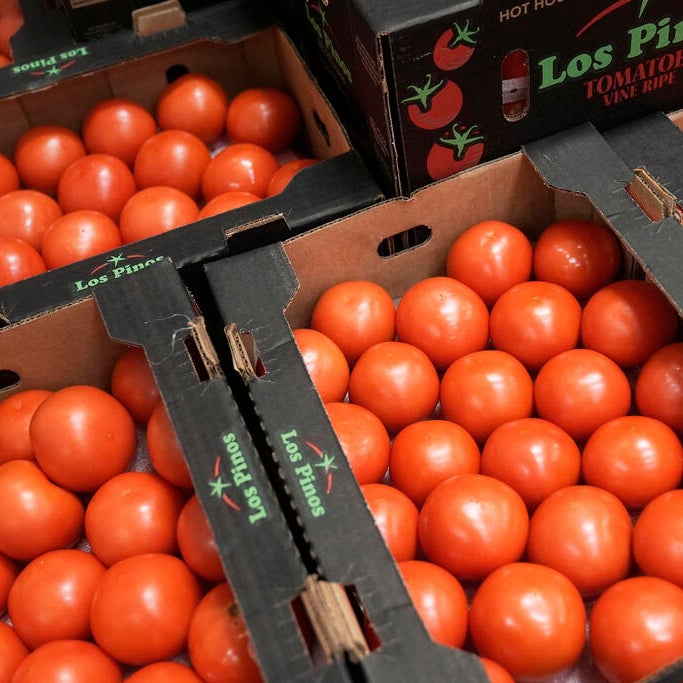Trump's 17% Tariff on Mexican Tomatoes Sparks Debate

New Tariff on Mexican Tomatoes Sparks Debate
The Trump administration has announced a 17% tariff on most fresh Mexican tomatoes, marking the end of a long-standing trade agreement with Mexico. This decision comes as part of broader efforts by President Trump to increase tariffs on various U.S. trading partners, including a recent warning to Mexico about potential 30% tariffs starting in August.
Critics argue that these tariff strategies could lead to higher consumer prices. However, Secretary of Commerce Howard Lutnick stated that the tomato tariff aligns with the president's trade policies and approach toward Mexico. "Mexico remains one of our greatest allies, but for far too long our farmers have been crushed by unfair trade practices that undercut pricing on produce like tomatoes. That ends today," Lutnick said in a statement.
Economic Impact and Industry Reactions
The United States imports approximately 70% of its tomatoes from Mexico, with around $3 billion worth of tomatoes exported annually. This figure has nearly tripled over the past 15 years, according to federal data. Supporters of the tariff believe it could provide a boost to the domestic tomato industry, which the Florida Tomato Exchange claims has been negatively affected by an influx of cheap Mexican tomatoes.
However, concerns remain about potential consequences, such as increased prices and harm to U.S. companies that rely on imported tomatoes. The tariff follows a long-standing dispute over allegations that Mexican tomato producers were selling tomatoes at unfairly low prices, harming U.S. growers. In 2019, during Mr. Trump’s first term, a deal was struck to avoid anti-dumping duties in exchange for Mexican producers agreeing to a minimum sale price.
Legal and Political Backdrop
In April, the Commerce Department announced it would exit the 2019 deal after 90 days, citing failure to protect U.S. tomato growers from unfairly priced imports. The department initially planned to impose 20.91% tariffs, slightly higher than the 17.09% levies announced on Monday.
The Florida Tomato Exchange praised the move, calling it “an enormous victory for American tomato farmers and American agriculture.” A group of Florida lawmakers, including Sen. Rick Scott, also supported the decision, calling it a major win for American growers.
On the other hand, the U.S. Chamber of Commerce urged Lutnick not to exit the deal, arguing that the import and sale of Mexican tomatoes generate significant economic benefits. They warned that withdrawing from the deal could trigger retaliation from Mexico and have widespread repercussions on the U.S. economy, affecting agriculture, warehousing, logistics, grocery, and restaurant industries.
Political and International Reactions
Democrats expressed strong opposition to the decision. Sen. Ruben Gallego, an Arizona Democrat, criticized the move on social media, urging people to buy tomatoes now. Rep. Sylvia Garcia warned that the tariff could lead to pricier salsa, emptier shelves, and higher grocery costs, risking jobs for tens of thousands of workers.
Mexico's agriculture and economy ministries criticized the move, calling it unfair and against the interests of both Mexican and U.S. producers. They claimed the growth in tomato exports stems from product quality, not unfair practices, and expected to find a solution to the dispute.
Broader Tariff Strategy and Economic Concerns
President Trump has sent letters to dozens of U.S. trading partners, threatening higher tariffs starting August 1. These actions partially reinstate some of the steep country-by-country levies that were delayed earlier this year. While Trump argues the tariffs are necessary to protect domestic jobs and correct unfair trade practices, many economists warn that tariffs can lead to sluggish economic growth and higher prices.
Food prices have seen a 2.9% increase over the 12-month period ending in May, slightly higher than the overall 2.4% inflation rate. However, this is well below the mid-2022 levels, when food prices were growing at over 10% year-over-year. The price of tomatoes fell 6.8% from May 2024 to May 2025.
Federal Reserve Chair Jerome Powell acknowledged that tariffs could impact prices but noted uncertainty about how much of that would be passed on to consumers. He added, “We really don't know how much of that's going to be passed through the consumer. We have to wait and see.”
Post a Comment for "Trump's 17% Tariff on Mexican Tomatoes Sparks Debate"
Post a Comment